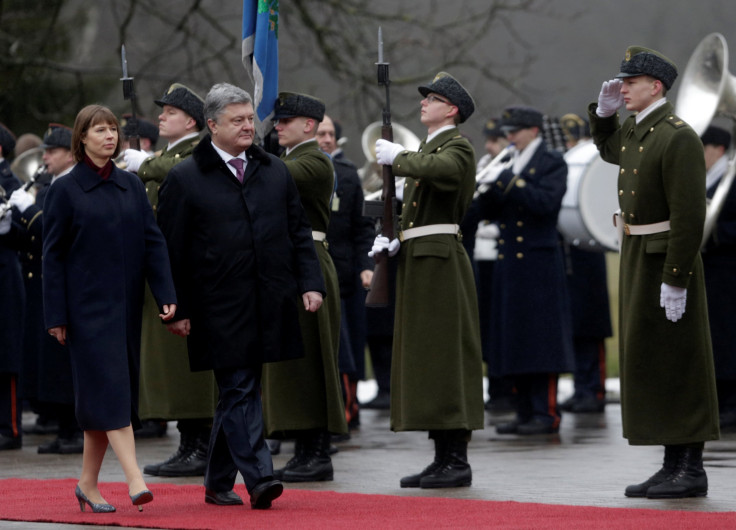Cold War: Russia Plotting Against British Soldiers During NATO Military Exercises, Estonia Warns

British troops working to deter Russian aggression in Estonia could face a stealth enemy in Moscow. Soldiers working under a NATO mission must keep an eye out for "Russian honeytraps" and "staged pub brawls," Estonia's spy chief warned.
President Vladimir Putin's regime, it seems, wants "to make British troops look like thugs," while they are stationed in Eastern, the head of Estonia's intelligence agency, the Estonian Information Board (EIB), Mikk Marran, told reporters Tuesday. He said once the soldiers arrive in March, they will become a "target" for Moscow.
"There will be 800 young British soldiers. People will be traveling from their bases to the cities. Probably they [will] do some pub hopping. We cannot exclude some fights that might be triggered by the opposite team, as we call it in Estonia. For example, traditional honeytraps and so forth," Marran said.
His message came as NATO is sending troops to bolster the military alliance's members in Eastern Europe after Russia held training exercises in the region and carried out the annexation of Crimea from Ukraine in 2014. Russia's Defense Ministry has urged NATO to back down. It's also sent state-of-the-art armaments and weapons systems to soldiers guarding its western borders.
Russia's "tool box" is "huge," Marran added, warning that the Brits' "pub hopping" in Estonia "provide a perfect opportunity for Moscow to create a false impression of western aggression."
Relations between the United Kingdom and Russia have grown increasingly tense, particularly after a British inquiry last year said the death of former spy Alexander Litvinenko was "probably" approved by Mr Putin.
"The prime minister and president agreed that British and Russian citizens faced common threats from terrorism, and that co-operation on aviation security in particular was a vital part of the international counter-terrorism effort," a spokeperson for Prime Minister Theresa May said last year after she spoke with Putin on the phone shortly after taking office.
Troops from other NATO nations, such as the U.S., U.K., Germany and Canada are also being sent to Lithuania, Latvia, Estonia and Poland in March. The goal is to train to shield against Russian cyber and electronic attacks.
© Copyright IBTimes 2024. All rights reserved.












